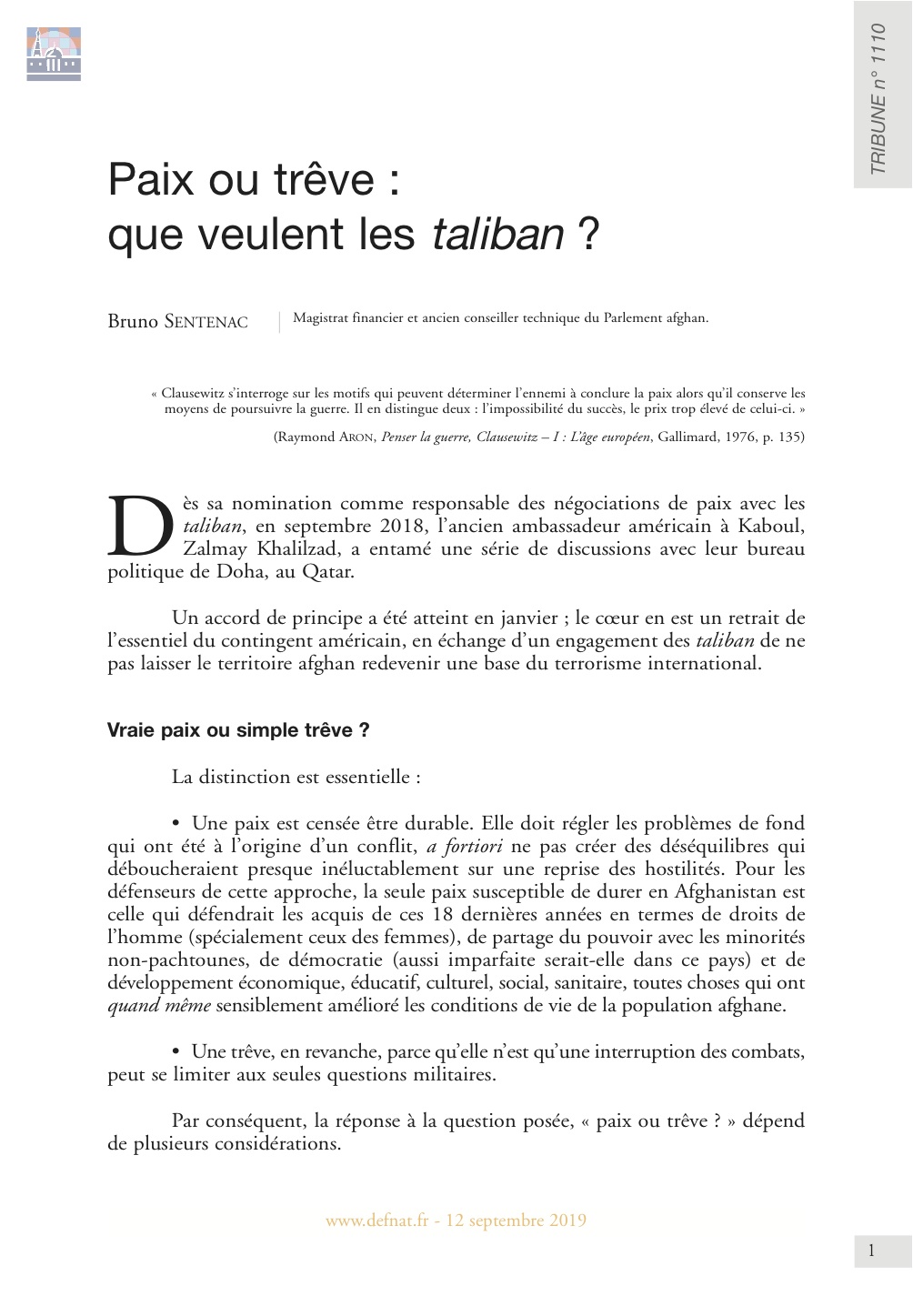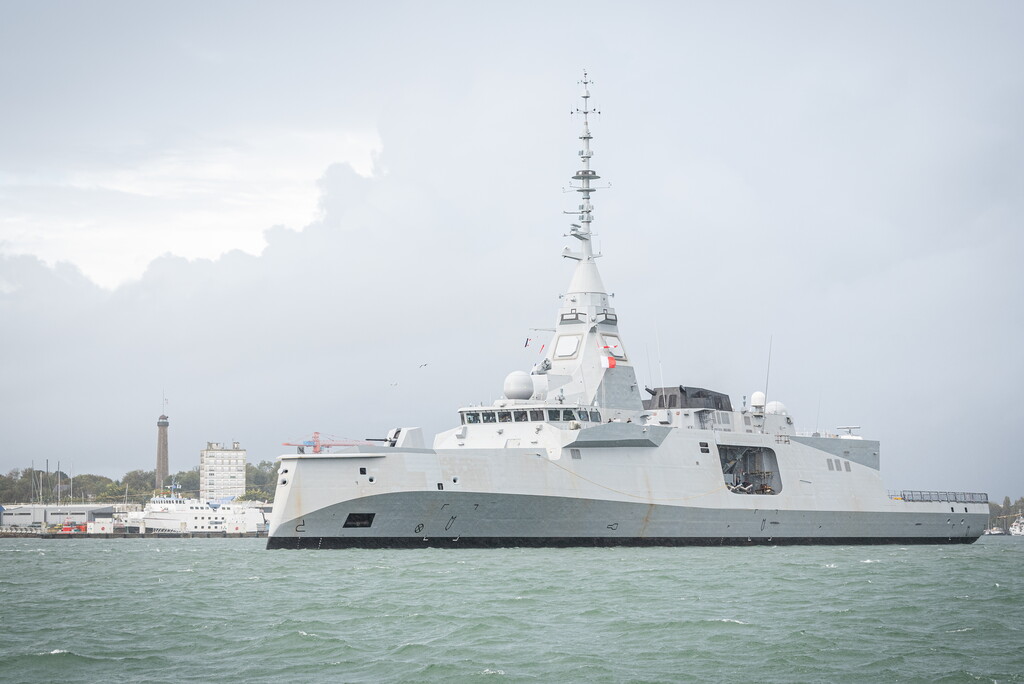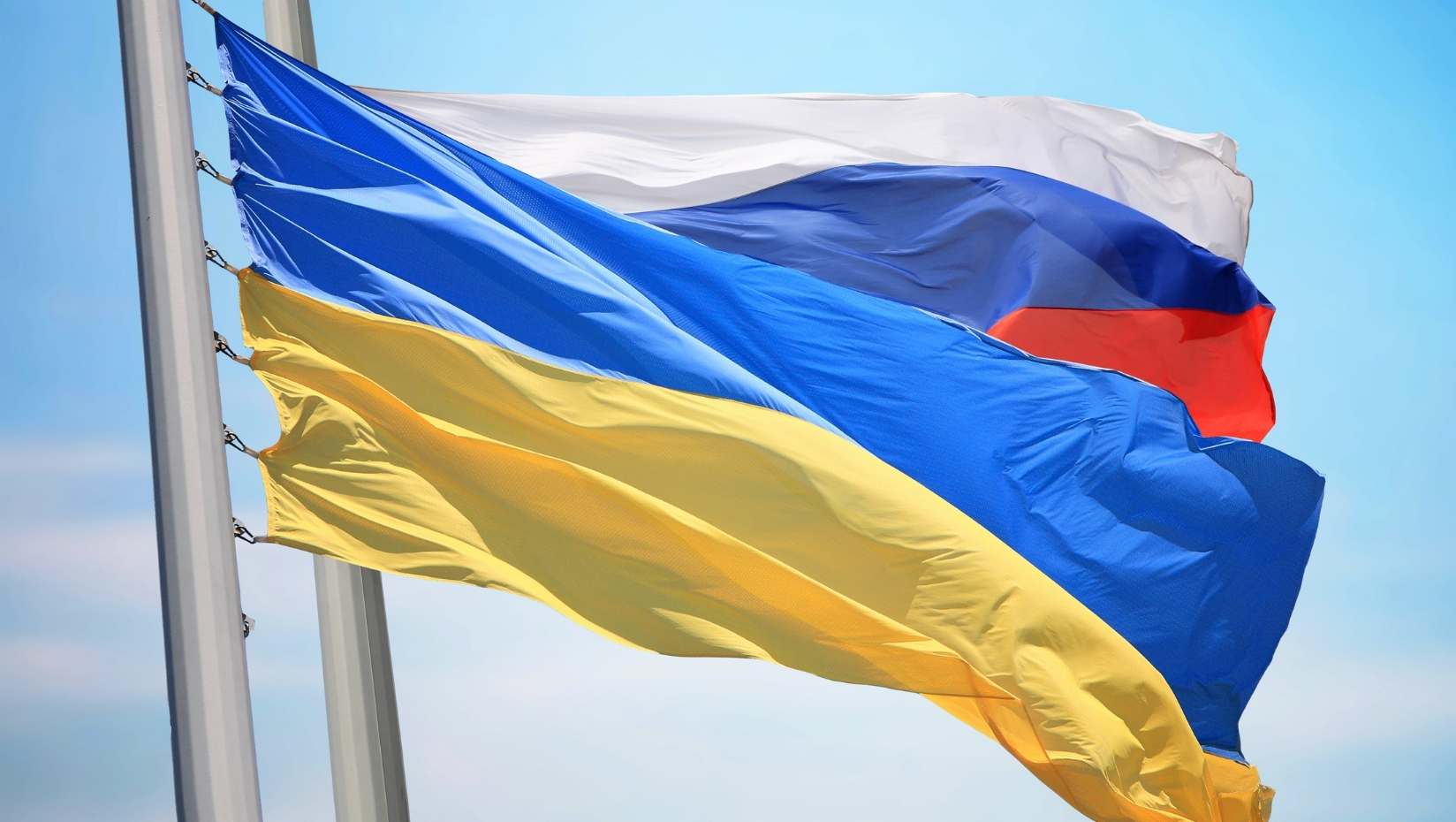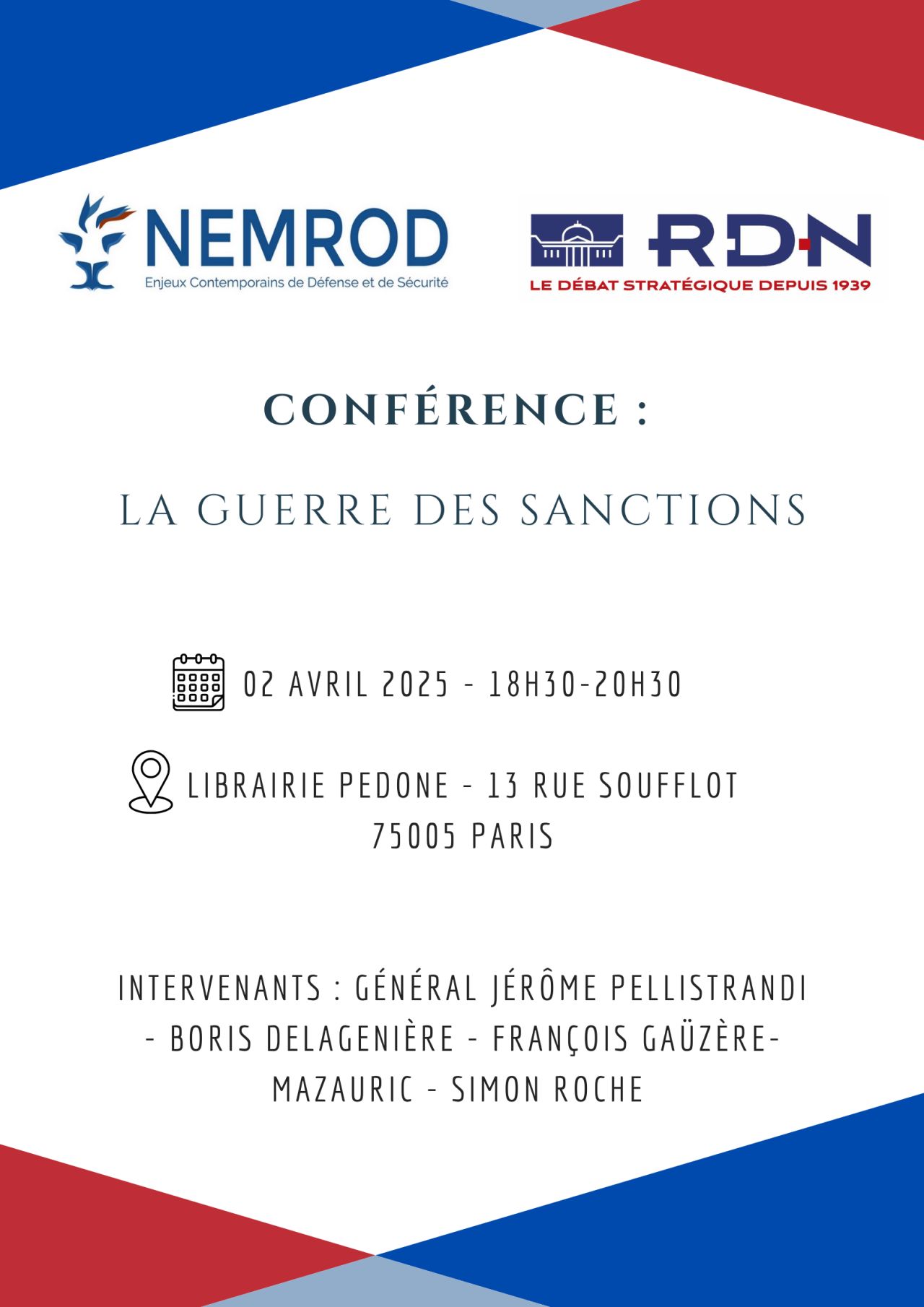Les négociations concernant l’Afghanistan sont d’une rare complexité, tant les acteurs ont des intérêts totalement divergents, y compris au sein de leur propre camp. Les taliban, chassés du pouvoir en 2001, veulent le récupérer. La difficulté est de comprendre leur projet politique face aux positions du gouvernement afghan et aux États-Unis qui, las de ce conflit, souhaitent néanmoins éviter de perdre un pays pour lequel ils ont payé le prix du sang. Maintenant, une des questions posées est : qu’est-ce que l’Afghanistan? Un État, oui, une nation, non, mais un puzzle de rivalités ethniques séculaires.
Peace or Truce: What do the Taliban want? (T 1110)
The negotiations concerning Afghanistan are of rare complexity, as the actors have totally divergent interests, including within their own camp. The Taliban, stripped of their power in 2001, want to recover it. The difficulty is in understanding their political project against the positions of the Afghan government and the United States who, tired of this conflict, nevertheless wish to avoid losing a country for which they have paid the price of blood. Now, one of the questions asked is: what is Afghanistan? A state, yes, a nation, no, but a puzzle of age-old ethnic rivalries.
« Clausewitz s’interroge sur les motifs qui peuvent déterminer l’ennemi à conclure la paix alors qu’il conserve les moyens de poursuivre la guerre. Il en distingue deux : l’impossibilité du succès, le prix trop élevé de celui-ci. »
(Raymond Aron, Penser la guerre, Clausewitz – I : L’âge européen, Gallimard, 1976, p. 135)
Il reste 96 % de l'article à lire








